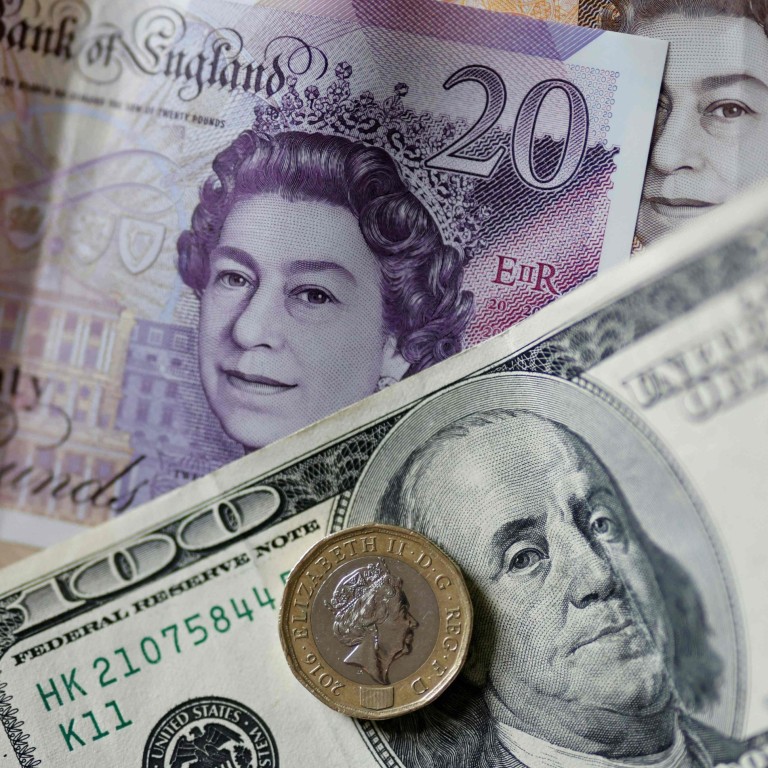
British pound plunges to record low after Truss government mini-budget
- Pound’s slide picked up pace last week after the UK’s new government outlined plans to cut taxes, boost spending
- Tax-cut plan has sparked concerns that increased public borrowing will worsen the nation’s cost of living crisis
The British pound tumbled nearly 5 per cent to an all-time low on Monday as investors ran for the exits after the new government’s financial plan threatened to stretch Britain’s finances to their limits.
The currency dived as much as 4.85 per cent to an unprecedented US$1.0327, extending a 3.61 per cent dive from Friday, when finance minister Kwasi Kwarteng unleashed historic tax cuts, and the biggest increase in borrowing since 1972 to pay for them.
Economists and investors said Prime Minister Liz Truss’s government, in power for less than three weeks, was losing financial credibility in unveiling such a plan just a day after the Bank of England hiked interest rates to contain surging inflation.
Sterling was last down 2.7 per cent at US$1.0560.
Marc Chandler, chief market strategist at Bannockburn Global Forex, called the currency’s record plunge “incredible”.
“The weekend press tarred and feathered sterling with assertions of its emerging-market status,” he said.
“I don’t buy that schadenfreude. Still, there is now bound to be speculation of an emergency BOE meeting and rate hike.”
Britain’s economy in a mess amid recession risk, inflation, energy crisis
Kwarteng’s announcement marked a step change in British financial policy, harking back to the Thatcherite and Reaganomics doctrines of the 1980s that critics have derided as a return to “trickle down” economics.
The so-called mini budget is designed to snap the economy out of a period of double-digit inflation driven by surging energy prices and a 15-year run of stagnant real wage growth.
In total, the plans will require an extra £72 billion of government borrowing over the next six months alone.
British government bond yields surged by the most in a day in more than three decades on Friday, with yields on the five-year gilt - one of the most sensitive to any near-term shift in interest rate or borrowing expectations - up by half a percentage point.
“When we see those gilt markets open a little later on, we’re probably going to see a pretty sharp spike,” said Chris Weston, head of research at Melbourne-based brokerage Pepperstone.

“In this environment, you either need to see much higher growth - which isn’t happening at the moment - or you need to see significantly higher bond yields to incentivise capital inflows. To get bond yields up to those levels, you need to see the Bank of England coming out and doing an emergency hike.”
Truss will face a rebellion from Tory backbenchers against her tax cuts if the pound falls to parity with the dollar, the Telegraph reported Saturday.
The opposition Labour Party - already enjoying a comfortable lead in the polls - is seeking to capitalise on the policy gulf that’s opened up with the Tories at its annual conference, which began in Liverpool on Sunday.
Leader Keir Starmer told the BBC he would reverse Kwarteng’s most eye-catching measure - the scrapping of the top 45 per cent rate of income tax levied on earnings over £150,000.
Additional reporting by Associated Press and Bloomberg

